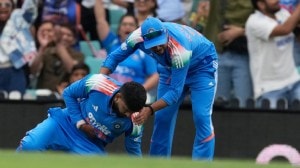Nepal prepares for elections as PM cautions against overreacting to rigging
The loud speakers have gone off and election rallies have come to an end. There is a period of silence...

The loud speakers have gone off and election rallies have come to an end. There is a period of silence as Nepal counts down to the historic election to the constituent assembly, three days hence.
While pre-poll clashes has seen more than 40 candidates injured, the real fear that grips Nepal is about whether the three major parties, which are together in the government today, stand equal to the historic task of writing a new constitution and ensuring that a democratic, federal, republic works given the clashes among themselves.
The Communist Party of Nepal-United Marxist Leninist (CPN-UML) has already lodged 98 sets of complaints before the Election Commission in the run-up to the balloting, all but two against the Maoists for intimidating political rivals and violating the code of conduct. The poll panel has so far adopted the tactic of cajoling and pursuing the violators rather than punishing them.
But while the outcome of the April 10 polls will not be known until three weeks after hustings, the Communist Party of Nepal-Maoists (CPN-M), no matter whether it wins or loses, has clearly set the agenda for the future, having launched its decade-long insurgency in 1996 on the questions of monarchy and hereditary rule.
“Other parties which are raising these issues today were calling us terrorists when we began our movement. They must apologise to the public for that,” Moaist chief Prachanda at an election meeting at Sankhu on the outskirt of Kathmandu on Monday. “They are shamelessly trying to hijack the credit as Nepal moves in the direction that we set,” he added for good measure.
Prime Minister G P Koirala, 84, of the Nepali Congress, hosted a reception for international observers who have descended down in the capital. In a brief chat with the media he cryptically said, “Everything is fair in love and war”. It was not clear whether he was saying that in response to Prachanda’s speech or in regard to the prevailing fear that the polls would be marred by violence and rigging.
In addition to the 1,000-odd international observers, with former US President Jimmy Carter in the lead, around 100,000 national observers will be joining them.



- 01
- 02
- 03
- 04
- 05




























